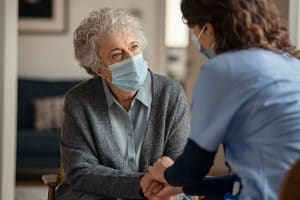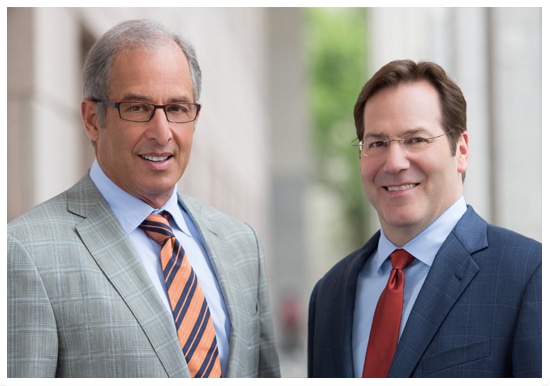Are Covid-19 Nursing Home Shields Protecting Negligence?
 When your older loved ones reach a certain point with their health, they may need more help than you can give them. You make the tough decision to do what you feel is in their best interest and move them into a nursing home. The idea is that they will receive an elevated level of care that you simply are not equipped to offer. The entire reason behind it is to allow your family member to live out the remainder of his or her life with as much compassion, dignity, and respect as possible.
When your older loved ones reach a certain point with their health, they may need more help than you can give them. You make the tough decision to do what you feel is in their best interest and move them into a nursing home. The idea is that they will receive an elevated level of care that you simply are not equipped to offer. The entire reason behind it is to allow your family member to live out the remainder of his or her life with as much compassion, dignity, and respect as possible.
Sadly, laws enacted to protect nursing homes from Covid-19 liability are also being used to shield them from nursing home neglect cases when staff fail to provide the most basic care. This negligence is cutting lives short that should be extended and it’s ending in wrongful death suits.
The danger of wide-ranging liability shields for nursing homes
Granting legal immunity to medical facilities without specific definitions in place as to what that immunity guards against is a dangerous game to play. It gives elder care facilities the ability to breach their duty of care and avoid being held accountable for it by way of a lawsuit. Meanwhile the resident and his or her family continue to hold up their end of the bargain by paying for care that may or may not be provided. It is an imbalance of power in favor of the nursing home staff and corporate owners who profit by keeping beds full no matter who sleeps in them.
North Carolina is one of 30 such states that have granted this immunity to health care facilities for the elderly and it is allowing patients with life threatening medical conditions – sometimes caused by staff – to go ignored. The immunity was granted after these nursing home facilities argued that the Centers for Disease Control and Prevention (CDC) routinely changed Covid-19 safety guidance, leaving them vulnerable to the infection making its way through their doors and risking the likelihood of killing the majority of patients.
When should legal immunity stop and liability begin?
The fact that the state created an overly broad law to protect nursing homes from being sued should not make those facilities eligible to escape liability for non-covid related illness or death when it involves negligence. Unfortunately, that is what is happening in the real world.
One family is testing the shield law’s strength after their mother, Palestine Howze, died of an infected bed sore she had been battling for 16 months. This was well before the law went into effect, but it was retroactively enacted to a few weeks before her passing. Her two daughters argue that their mother was not receiving the proper level of care even pre-covid-19. They were bathing and feeding her themselves during visits and once coronavirus took over, her daughter with power of attorney (POA) essentially ceased to exist to the facility.
Ms. Howze was in need of a wound care specialist and IV antibiotics, and her POA begged them several times to transfer her mother to a hospital. Those requests were declined on the basis of what turned out to be false claims, including that:
- Hospitals were refusing patients due to Covid-19
- Howze would be better cared for at the nursing home
- The nursing home was equipped to care for her urgent medical needs
Ms. Howze died from lack of care in an understaffed nursing home from a wound that had not been controlled for more than a year.
The liability shield law protects bad nursing homes from financial ruin over lawsuits, even when they may deserve it. Even worse, it prevents families from seeking justice for their loved ones who were owed a death with dignity when their time came and not a moment sooner.
If you have a family member who has been injured or died at the hands of a negligent nursing home or assisted living facility, you should have a right to pursue a claim. The compassionate Charlotte nursing home neglect lawyers at Warren & Kallianos, PLLC are here to help families in our community to honor the memory of their loved one by helping to protect others from the same fate. To schedule your free, no-obligation consultation in our Charlotte office call 704-377-7777, or we invite you to reach out to us through the firm’s contact page to tell us your story.

At Warren & Kallianos, we believe in the importance of working directly with our attorneys, Jeff Warren and Chris Kallianos. When you work with our firm, Jeff and Chris are always accessible to you throughout the progress of your case.
Read more about Warren & Kallianos, PLLC
